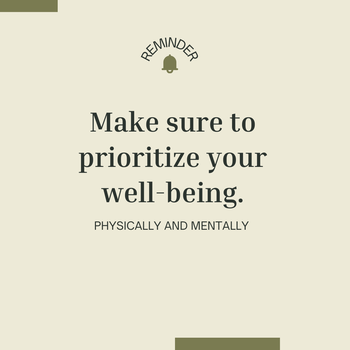Embracing a Healthy Lifestyle

Hello, wonderful parents and students!
As January unfolds, we embark on a journey of well-being tailored just for you. This month's theme is all about embracing a Healthy Lifestyle. Being a high school student can be tough—balancing academics, extracurriculars, and social lives can sometimes feel like a lot to juggle. But it’s important to remember that a healthy lifestyle isn’t just about what you do physically; it’s also about taking care of your emotions and mental health. Here are some simple but powerful ways to embrace a healthy lifestyle both physically and emotionally.
1. Move Your Body
Physical activity is key to feeling good, both inside and out. It doesn't have to mean hours at the gym—find something you enjoy! Whether it's dancing, running, hiking, or even just taking a walk, exercise releases endorphins, the "feel-good" chemicals in your brain. Regular exercise can boost your mood, help you focus better in school, and even help you sleep better.
2. Eat Balanced Meals:
What you eat has a direct impact on how you feel. Eating balanced meals with a mix of fruits, vegetables, protein, and healthy fats helps fuel both your body and brain. Avoid relying on too many sugary snacks or junk food, as they can cause energy crashes. A nutritious diet helps you feel energized, focused, and ready to tackle the day.
3. Prioritize Sleep
It might seem tempting to stay up late studying or scrolling through your phone, but getting enough sleep is crucial. Aim for 7-9 hours of sleep each night to help your brain function better, improve your mood, and stay healthy. A good night’s sleep gives your body the rest it needs to perform at its best.
4. Manage Stress
Stress is part of life, especially during high school, but how you manage it can make a big difference. Find healthy ways to cope, like talking to a friend or a trusted adult, practicing mindfulness, or taking up hobbies that relax you. Remember, it’s okay to ask for help when you’re feeling overwhelmed.
5. Take Care of Your Mental Health
Being emotionally healthy is just as important as being physically healthy. It’s important to recognize your feelings and take time to understand what’s going on inside your mind. If you're feeling stressed, anxious, or down, take a break and talk to someone who can help, whether it's a friend, family member, or counselor. Don’t hesitate to take time for yourself when needed.
6. Stay Connected
Maintaining positive relationships is important for both your physical and emotional well-being. Surround yourself with friends and people who make you feel good about yourself. A strong support network can help you navigate tough moments and celebrate your successes.
7. Practice Gratitude
Taking a moment each day to reflect on what you’re grateful for can boost your emotional well-being. Whether it's appreciating the little things like a good meal or a fun conversation with a friend, practicing gratitude can shift your mindset toward positivity.
This month students will be writing exams and saying goodbye to the first semester. If you find your student needs some strategies for test anxiety or just some mindfulness tips they can always come to the Student Services area and find that support.
Resource Roundup: Nurturing Well-Being
Discover these handpicked resources suitable for parents and students of all ages, designed to inspire a healthy lifestyle:
Connect with Our Student Advocacy Counsellors: Here for You
Need guidance or wish to discuss well-being? Our Student Advocacy Counselors are ready to help. Reach out at Heleme.Fyith@nlsd.ab.ca or Ashley.Gordey@nlsd.ab.ca or call 780-623-4271. Let's continue our journey of well-being and vitality together.
Here's to a January filled with vibrant health, joyful exercise, and peaceful sleep. Let's nurture a healthy lifestyle and embrace the year with vitality!
